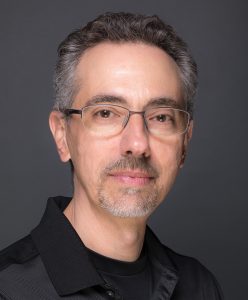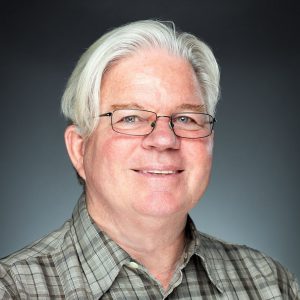Meet WiRED’s CHW Documentary Team
Telling WiRED’s Story to Improve Community Health in Kisumu, Kenya
By: Allison Kozicharow; Edited by Elizabeth Fine
Meet Arlene Islas, Joe Marilo and Gary Wisser — the team that produced the WiRED International documentary “Community Health Begins with Knowledge.” The film tells the story of the launch of WiRED’s Community Health Worker (CHW) Training Program in Kenya last February.
Mr. Marilo said, “Our task was to capture the living conditions and the people eking out their existence in Kisumu, Kenya, and contrast it with the impact that WiRED and their partner, KUAP Pandipieri, are making to improve community health. Our goal was to show how one person can lift another, and in turn, affect many, many more.”
“My work has always been informed by a passionate belief that visual storytelling can prompt positive social change. I am interested in themes that celebrate cultural diversity and enhance interconnectedness in our shared humanity.”
—Arlene Islas
The three of them instantly clicked as a team. Based in Pomona, California, Mr. Marilo and Mr. Wisser had worked on many projects together over a 20-year period but never with Ms. Islas, who lives in Tucson, Arizona. For months they all met virtually for eight to 10 Zoom meetings, often lasting 3 hours a session, in order to cover pre-production. They met in person for the first time in LAX airport before beginning the flights to Kenya.
The team’s journey took them nearly halfway around the globe from Los Angeles to Frankfurt, Germany; Frankfurt to Addis Ababa, Ethiopia; Addis Ababa to Nairobi, Kenya; and finally, Nairobi to Kisumu. They left on a Thursday, arrived on Saturday and spent seven days in Kisumu before returning home. Once in Kisumu, the team was allowed complete access not only to the CHW training classes, but to the people living in the surrounding slums.
“The trip was transformative. I’ve never traveled so far, been so exhausted and felt so fulfilled. We don’t choose where we are born, but we certainly have the capacity to choose HOW we live WHERE we live and how we can AFFECT the lives of others.”
—Joe Marilo
Mr. Wisser said, “The CHW team in Kisumu was amazing. I don’t think I have ever met a more passionate group of people. Most of them had events in their personal lives or with family members that led them to want to make a difference in the future of their communities. WiRED provided a chance to gain knowledge that the CHWs could take back to their own village. In a land of limited resources, they became a source of trusted information on health issues ranging from cleanliness, food preparation, care during pregnancy and STD prevention. They continue to complete training modules and are proud of the positive changes they are making for local residents and future generations.”
“That trip changed my life. I now see many things that we take for granted. I see resources that we waste, and health knowledge that we ignore. I am always thinking about my friends in Kenya and how much they do for each other. I understand that the help we can give them in the way of health education will be multiplied by a group of caring, loving people in Kisumu and other communities throughout the world that WiRED International serves.”
—Gary Wisser
The production schedule was hectic and exhausting, with early calls and long, hot, dusty days and sleepless nights. As to the team’s philosophy, Ms. Islas said, “Our goal was to be respectful, not exploitative, to the people and to entertain and inspire. We began with the desire to tell a story and soon moved to the need to tell their story.”
Haven’t seen the documentary yet? Click here.
Note: WiRED’s CHW program has launched in India, Nicaragua and Peru and is to begin in Armenia sometime next year. Training CHWs to serve their own communities’ health provides basic clinical services in low-resource areas of the world where doctors are scarce. CHWs can improve health behaviors by offering health education and health surveillance and by acting as a bridge between their communities and the formal health system.
“Community Health Begins with Knowledge”
Produced and Directed by Arlene Islas
Executive Producers: James Levin and Gary Selnow
Photographers: Joe Marilo, Gary Wisser and Arlene Islas
Original Music by Jose Luis Puerta and David Perez
- Special Mention Laurel, London X4
- Seasonal Short Film Festival AUTUMN 2020
Bios
Arlene Islas
 Arlene Islas is a film, television and digital video director, producer, photographer and editor. A native of Mexico, Islas graduated from the University of Arizona with a Bachelor of Fine Arts in Photography and recently earned a Social Entrepreneurship and Community Development graduate certificate from Arizona State University. She previously worked at Arizona Public Media, the PBS and NPR affiliate in Tucson, as a television director and producer. Her work has earned several awards including two regional Emmys, three regional Edward R. Murrow awards and the 2019 national Edward R. Murrow award in feature reporting. She currently manages video communications for the University of Arizona and also works as an independent producer and editor.
Arlene Islas is a film, television and digital video director, producer, photographer and editor. A native of Mexico, Islas graduated from the University of Arizona with a Bachelor of Fine Arts in Photography and recently earned a Social Entrepreneurship and Community Development graduate certificate from Arizona State University. She previously worked at Arizona Public Media, the PBS and NPR affiliate in Tucson, as a television director and producer. Her work has earned several awards including two regional Emmys, three regional Edward R. Murrow awards and the 2019 national Edward R. Murrow award in feature reporting. She currently manages video communications for the University of Arizona and also works as an independent producer and editor.
Joe Marilo, M.A.
 Joe Marilo is a senior instructional media producer in the Center for Excellence in Teaching and Learning at Western University of Health Science in Pomona, California. He performs a variety of specialized and technical duties related to the integration of multimedia technology and instructional design theories. He works closely with faculty across all disciplines to create compelling and immersive content. With over 30 years of experience in the field, he is adept in video production, editing, motion graphics, aerial videography and live webcasting. Mr. Marilo holds a Bachelor of Arts in Communications with an emphasis in film production from Loyola Marymount University and a Master of Arts in Education with an emphasis in Educational Multimedia from Cal Poly Pomona.
Joe Marilo is a senior instructional media producer in the Center for Excellence in Teaching and Learning at Western University of Health Science in Pomona, California. He performs a variety of specialized and technical duties related to the integration of multimedia technology and instructional design theories. He works closely with faculty across all disciplines to create compelling and immersive content. With over 30 years of experience in the field, he is adept in video production, editing, motion graphics, aerial videography and live webcasting. Mr. Marilo holds a Bachelor of Arts in Communications with an emphasis in film production from Loyola Marymount University and a Master of Arts in Education with an emphasis in Educational Multimedia from Cal Poly Pomona.
Gary Wisser
 Gary Wisser is the educational 3D visualization specialist in the Center for Excellence in Teaching and Learning at Western University of Health Sciences in Pomona, California. With a background in video production and 3D animation, he has concentrated on the use of 3D visualization in medical education. His 3D scans are used to create animations, illustrations, interactive web and virtual reality projects. Mr. Wisser creates computer aided designs and 3D prints prototypes for university research. He works to create visuals that help instructors disseminate information more efficiently, provide students with accessible study tools and enable researchers to develop instruments to advance their visions.
Gary Wisser is the educational 3D visualization specialist in the Center for Excellence in Teaching and Learning at Western University of Health Sciences in Pomona, California. With a background in video production and 3D animation, he has concentrated on the use of 3D visualization in medical education. His 3D scans are used to create animations, illustrations, interactive web and virtual reality projects. Mr. Wisser creates computer aided designs and 3D prints prototypes for university research. He works to create visuals that help instructors disseminate information more efficiently, provide students with accessible study tools and enable researchers to develop instruments to advance their visions.


